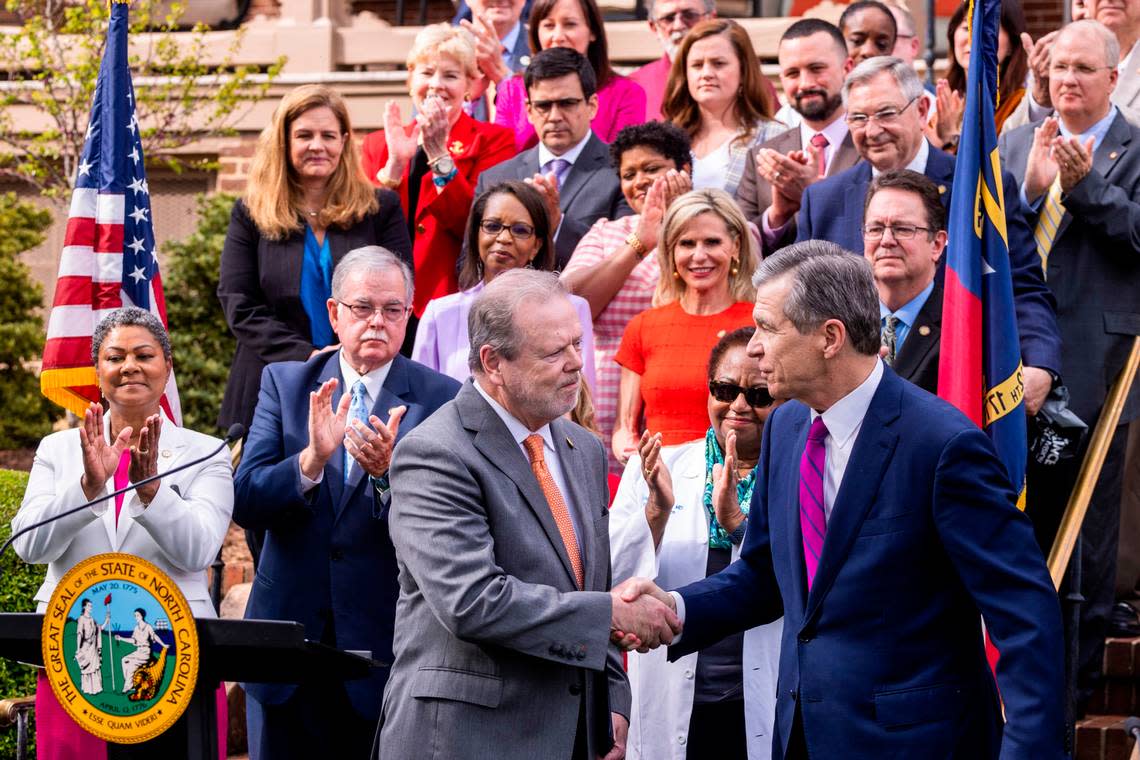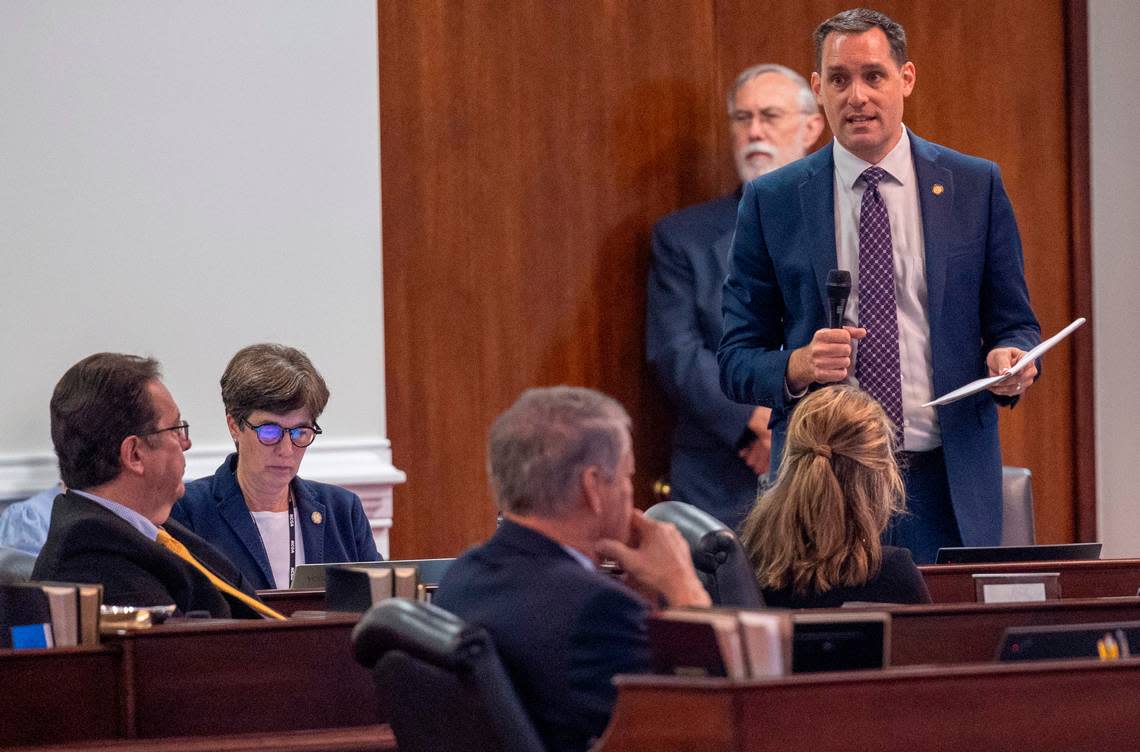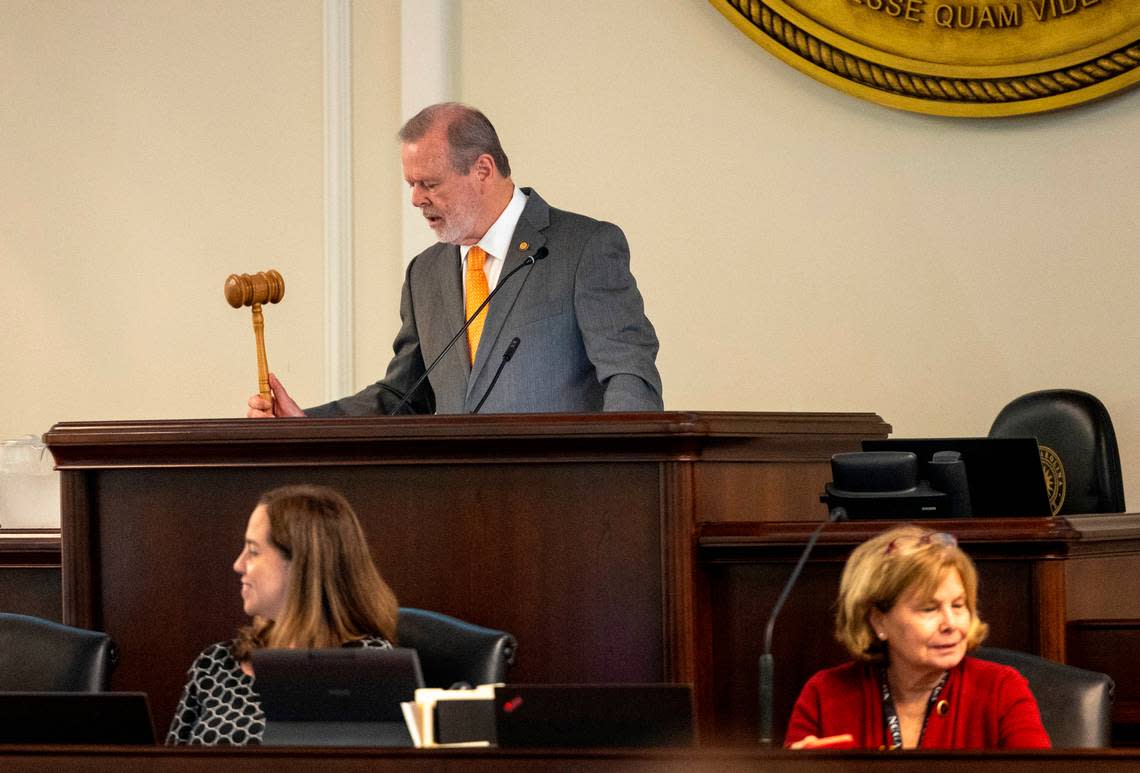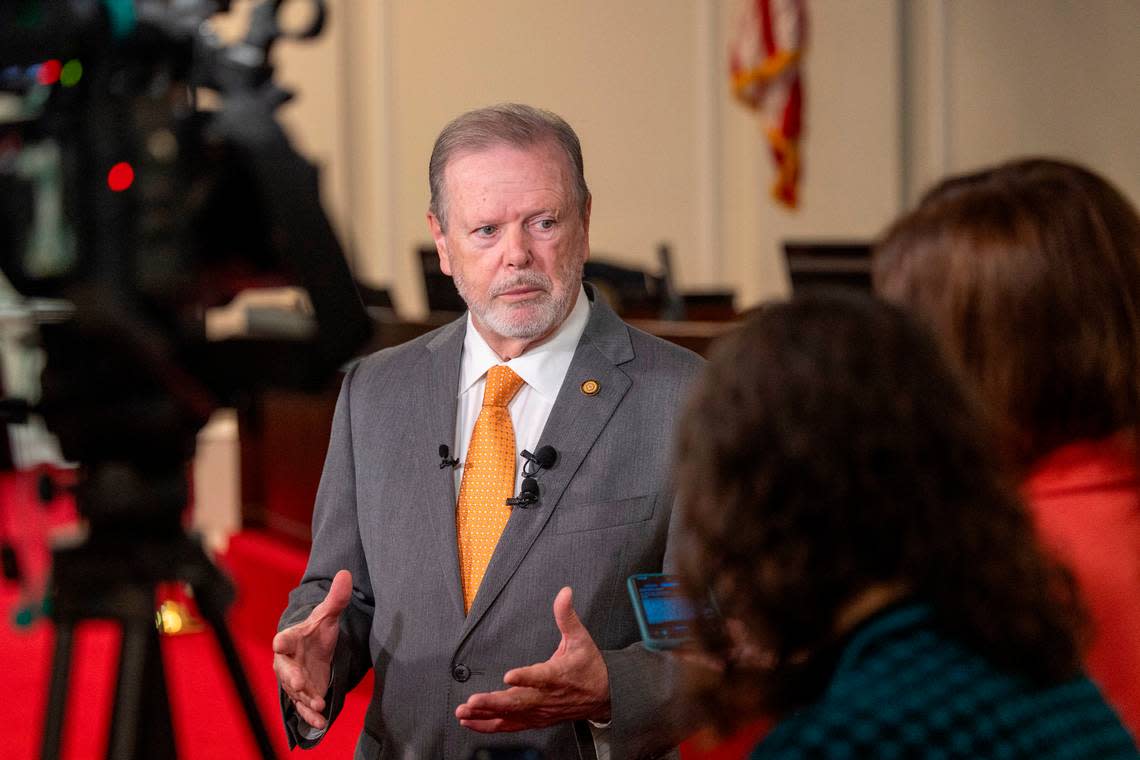NC state budget passes GOP-controlled legislature, Cooper will let it become law. Here’s why.
North Carolina’s state budget, which spends about $30 billion of taxpayer money, passed the Republican-controlled General Assembly on Friday after a final Senate vote. It passed 26-17, the final vote on a budget that is almost three months late.
Soon after the vote, Democratic Gov. Roy Cooper said he will let the bill become law without his signature, citing Medicaid expansion as the main reason, while also calling it a “bad budget.”
“I will not allow people who are crying for help to wait any longer, so I am directing our Department of Health and Human Services to begin today the process for expanding Medicaid while allowing this budget to become law without my signature,” Cooper said in an emailed statement Friday morning.
The Republican-supermajority legislature’s budget bill includes an average 7% raise for state employees, non-certified school employees and teachers over the next two years, The News & Observer previously reported. School bus drivers, which have had a critical shortage this year, will get an additional 2% raise, bringing their raise to 9%. Also getting higher raises are most State Highway Patrol officers, at about 11%. Raises will be retroactive to the start of the fiscal year, which was July 1.
The passage of the budget, House Bill 259, means that Medicaid expansion, a longtime priority of Democrats, and recently many Republicans, will come to North Carolina once it becomes law.
Cooper has long pushed for Medicaid expansion, which extends health care coverage to hundreds of thousands of North Carolinians.

Sen. Brent Jackson, an Autryville Republican and top budget writer, was the only Republican to speak on the bill Friday, noting that the senators had extensive debate during its previous vote on Thursday.
Sen. Graig Meyer, an Orange County Democrat, criticized the budget during floor debate on Friday, particularly the expansion of powers for the Joint Legislative Commission on Government Operations, known as Gov Ops, and exempting state legislators from state public records law. In the budget, lawmakers will get to decide what’s a public record.
The budget passed its final vote in the House soon after midnight on Friday morning, with all Republicans and a few Democrats in favor.
It also includes tax cuts, including reducing the personal income tax rate to 3.99% by 2025. The rate could drop to 2.49% if revenue collection goals are met. For certain corporations, the budget lowers the franchise tax, or fees paid to do business. North Carolina’s corporate income tax rates are already set to drop to zero by 2030.
Republicans have a supermajority in both the House and Senate, so if Cooper had vetoed the budget, they have enough votes to overturn his veto.

The governor has 10 days to take action on the budget by either signing it, vetoing it, or letting it become law without his signature as the 10 days’ deadline expires, the latter of which he plans to do.
“Health insurance for 600,000 more North Carolinians that brings more mental health and substance use disorder treatment, help for desperate rural hospitals and billions of dollars into our economy is a life-saving, monumental decision for our state,” Cooper said Friday.
Medicaid expanding soon
“Make no mistake, overall this is a bad budget that seriously shortchanges our schools, prioritizes power grabs, keeps shady backroom deals secret and blatantly violates the constitution, and many of its provisions will face legal action,” he continued.
“However, we must recognize this irresponsible legislature’s decade of refusal to expand Medicaid, which has caused life and death situations for so many North Carolinians and threatened the very existence of numerous rural hospitals,” he said.
Senate leader Phil Berger told reporters after session on Friday that if Cooper would “go ahead and sign it, we can move everything along a little quicker. But I think that’s an indication that this budget is a solid budget, something that’s good for the state of North Carolina.”
Berger pointed out the $2 billion going to water and sewer projects across the state, tax reductions and Medicaid expansion in the budget.

Lt. Gov. Mark Robinson, who is the Republican frontrunner for the 2024 gubernatorial race, opposes Medicaid expansion. Berger said if Robinson wins the governor’s office, he would be obligated to carry out the law, regardless of his opinion. Robinson, as lieutenant governor, is the Senate president and could preside regularly. However he rarely does, including Friday.
Berger said Friday that the amount of raises was decided early in House and Senate Republican budget negotiations because they determined that after agreeing on a total spend number, which is about $30 billion each of the next two years.

Letting casinos go
One issue that held up final budget talks was whether or not to legalize nontribal casinos in the state, which had been a Berger priority. A deal without casinos was reached just a few days before the final budget vote.
Berger said “the emotion that had taken hold, some of the wild accusations that were out there on social media and within private conversations and meetings. were such that when when you get to that point, it’s it’s very, very difficult to get a reasoned decision.”
He felt that that it wasn’t going to improve in the short run, he said, and that letting it play out more weeks as the budget was delayed further “was not in the best interest of the state.”
Berger said the short session, which is in the spring of 2024, may be the next opportunity to advance casino legislation.
Luciana Perez Uribe Guinassi and Avi Bajpai contributed to this story.
